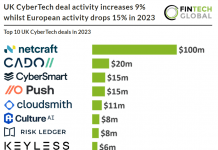As the world moves out of the pandemic and into the cost-of-living crisis, the future of financial advice is continuing to change.
Aveni has issued a report that explores how driving automation in the financial advice industry with data capturing will fit into that future.
It stated that the financial advice industry has relied on historically high margins, slowing down change and is a laggard in adopting new technologies. It added that there has only been incremental improvements to client reporting systems, digital planning tools, CRM systems, and digital data capturing processes.
Margins are now being compressed, with PWC claiming there has been a 10% decline since GFC. New technologies will now drive changes across all facets of the industry. It added, “The trend towards PE backed adviser consolidation and vertical integration, to enable the capture of more fees across the value chain, does not resolve the structural inefficiencies and lack of scalability inherent in wealth management businesses.
“This has diverted focus from the real issue and the next major challenge for the industry: operational efficiency and the provision of high-quality service to the masses in the post-pandemic 21st century.”
The pandemic has had a massive impact on the use of digital infrastructure within the financial ecosystem. One of the biggest changes is the widespread use of video conferencing. This has transformed how advisers can serve clients.
It claims that financial advice firms report that pre-pandemic, over 90% of their business was done face-to-face and 10% over VC/phone. However, now some advisers report 80% of advice is delivered through VC.
While firms might easily be able to meet this need, they need to capture the data from the discussions.
Aveni said, “Capturing the data in a client meeting through recording, can be used to power a new era of automation and introduce data-driven technologies that have been previously unreachable for financial advice.
“A client meeting contains the data that drives post meeting processes, from administration, to compliance testing, adviser competency, and suitability. Models can be trained to replicate these processes and effectively remove all low value administration, allowing Financial Advisers to focus on what both they and the client value, building great relationships and coaching clients through their financial futures.”
Aveni has released a new whitepaper on the adoption of machine learning in human-centred advice. This can be downloaded here.
Copyright © 2022 FinTech Global











